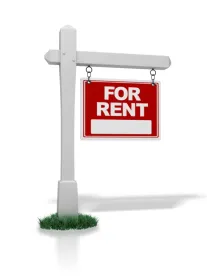The battle between "pesky, disrespectful, transient tenants," and "overbearing, Big Brother community associations" may be heating up in North Carolina, thanks to a bill filed at the General Assembly this week.
The ability of homeowners to rent their residential property in a planned community is a hot button issue in North Carolina and across the country. Community associations are often leery of tenants—after all, tenants do not pay assessments, often do not share a vested, long-term interest in the community, but still have access to community amenities. Homeowners seeking to rent their residential property in a planned community, however, view renting as an inherent part of their ability to use their properties in any manner they see fit.
Currently, it is possible for community associations to restrict rentals if the rental restrictions are narrowly tailored and properly adopted. For example, North Carolina Courts will generally uphold rental restrictions that were put in place by the association's original covenants or are deemed reasonable and consistent with the original covenants if adopted later down the road. Accordingly, community associations in North Carolina must tread lightly when attempting to impose subsequently-adopted rental restrictions after homeowners took title to their properties. Still, many community associations attempt to significantly expand rental restrictions beyond the scope of the original language in the covenants, via a vote of the membership.
However, House Bill 594 has the potential to stop that practice in its tracks. The Bill, which was filed on April 3, 2019, would, if passed, allow homeowners to continue to lease their residential lots in a planned community, even if a community's covenants or bylaws are subsequently amended to restrict or limit leasing. In short, the community's covenants did not include a rental restriction when the homeowner took title to his or her property, and the community association would be out of luck in any attempt to subsequently restrict or limit rentals, even if an amendment to that effect was voted on and passed by the membership.
The Bill has a long way to go in the General Assembly, and its chances of passage in both the North Carolina House and Senate are uncertain at this time. We will continue to monitor the Bill's progress.




 />i
/>i
